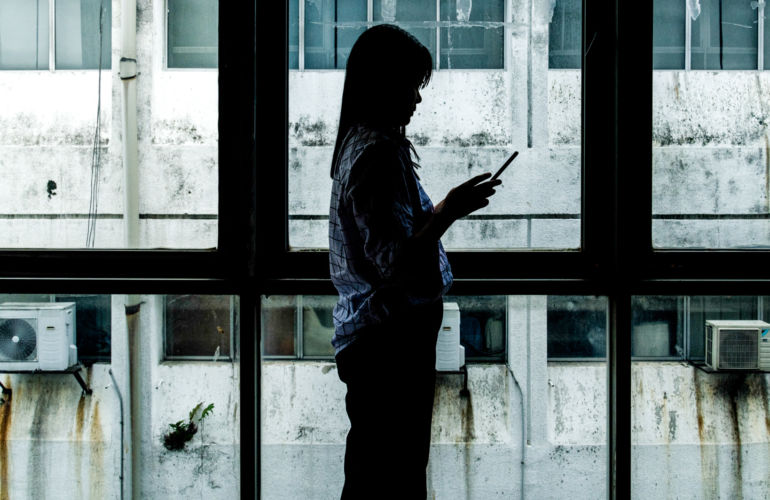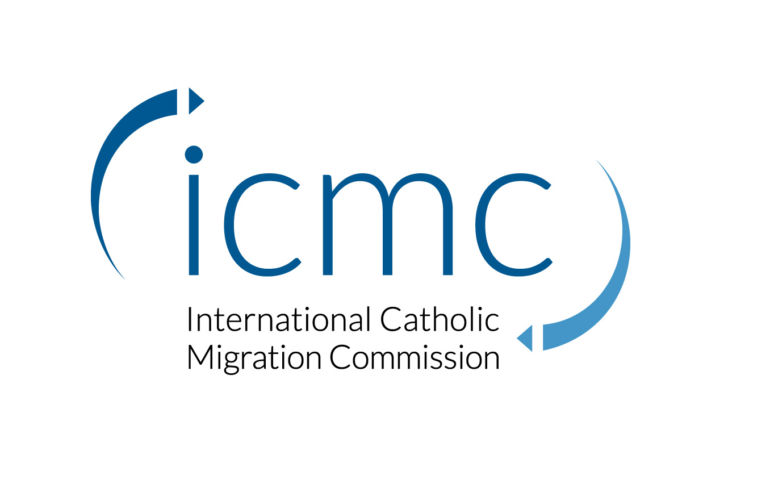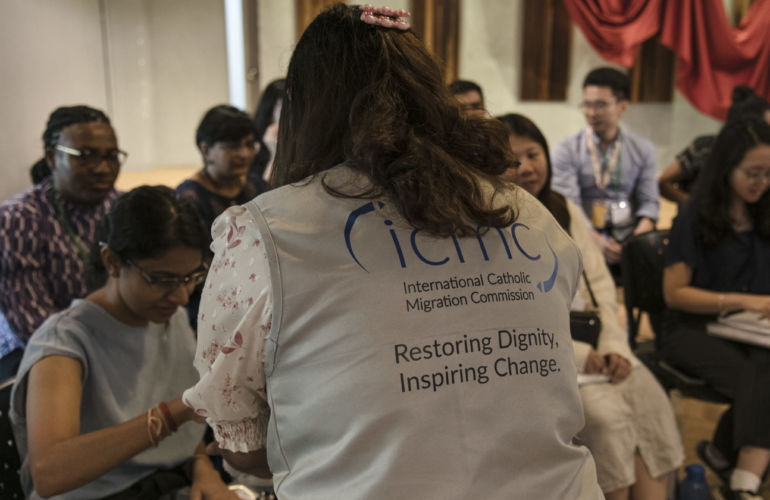From Survivor to Community Influencer: The Story of Bibi Anisa
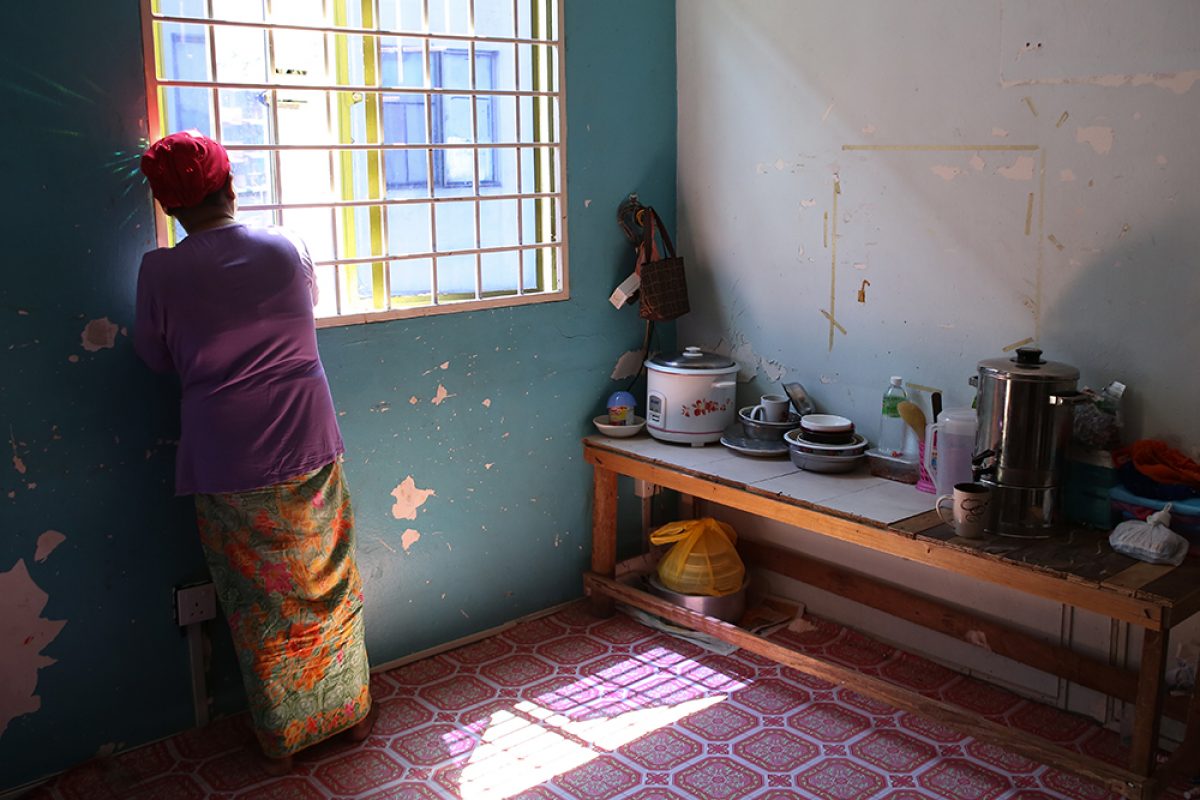
In the first part of this series on the International Catholic Migration Commission’s protection work with survivors of gender-based violence in Malaysia, we followed ICMC’s Refugee’s Protection Corps’ members as they conducted awareness-raising activities in the Rohingya community. In part two, we discovered some of the organization’s partners who help provide services to survivors. In this third and final part, we meet Bibi Anisa, a refugee who turned her family’s life around after seeking ICMC’s services.
By Corinne Brodeur*
Bibi Anisa* wears a gem-spangled pink headscarf and a big smile. She laughs a lot, and she is quick to request selfies with people she meets. At the age of 30, she is a single mother and the sole provider for her 15-year-old daughter and her eight-year-old son.
Bibi Anisa speaks Rohingya, Malay, Burmese, as well as several dialects. She is intent on improving her English and practices any chance she gets, mainly by watching YouTube videos and memorizing phrases.
But Bibi Anisa is also illiterate. Her parents, undocumented refugees, arrived in Malaysia from Burma a few years before her birth. She was born at home and never received the paperwork necessary to attend school. As a child, she never saw a doctor or received any services from the State, as her family was afraid that it would lead to them being discovered and arrested.
When her father passed away when she was six, Bibi Anisa began to feel pressure to provide for her mother and two younger sisters. She decided that marriage was the best way to help her family. According to Rohingya custom, her husband should provide for them.
Bibi Anisa married at the age of 13. “I was too young to judge if my husband was a good man,” she says. Shortly after her wedding, her husband began beating her every day. “Once, he hit me behind the head with a large stick,” she recalls. “Since then, I have problems with my memory.” He did not help provide for her family’s needs, and he stopped working three months after they were married.
“He started to follow his friends in whatever they were doing,” she recalls. He began abusing drugs and alcohol, breaking into houses and stealing to feed his addictions. She was 15 and pregnant with their daughter when he was arrested for the first time and sentenced to seven months in jail. Bibi Anisa began supporting her mother and sisters by working as a cleaner.
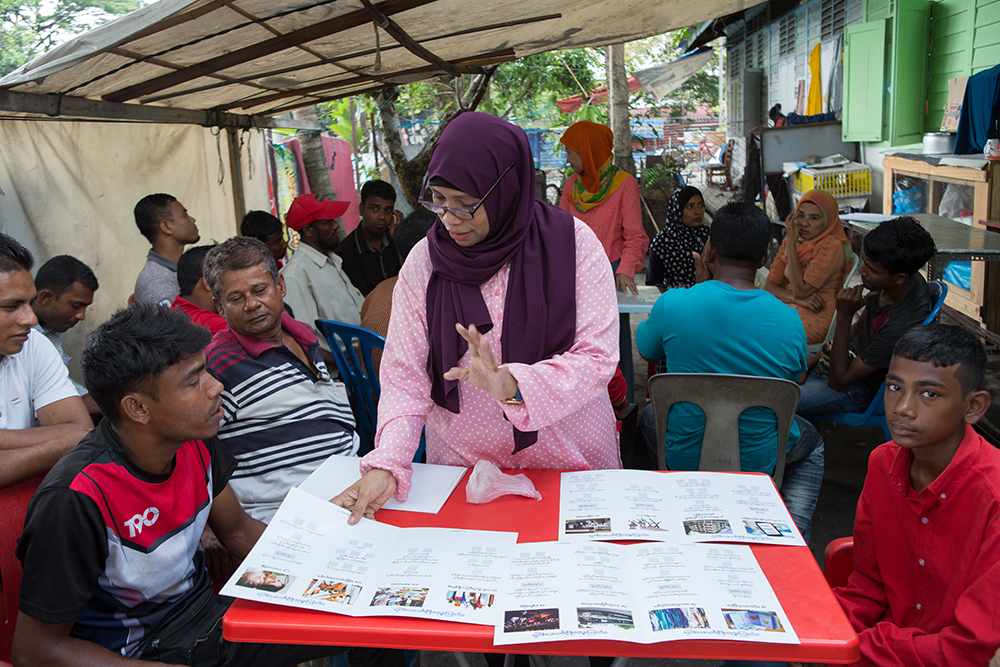
In 2017, after extreme abuse from her husband, Bibi Anisa ran away to a friend’s house. She was barely able to walk because of the severity of her wounds, and therefore left without her children. She had no money and no access to medical care. With no options in sight, she was thinking of returning to her husband. And then she heard of the ICMC’s services to refugee survivors of gender-based violence through its awareness-raising activities.
She spent three months in a shelter. During that time, ICMC helped her file a police report, which allowed her to gain custody of her children, who joined her. When she was discharged, she attended a few more counseling sessions organized by ICMC. She also benefitted from the organization’s emergency funding program, which grants survivors of gender-based violence an allowance for their rent and basic needs for three months to help them as they rebuild their lives.
Through ICMC connections, Bibi Anisa discovered the Rohingya Women’s Development Network (RWDN), an organization for Rohingya refugee women in Malaysia founded in 2016. The organization helps Rohingya women become empowered, active participants in their community. The RWDN’s members are part of ICMC’s community influencers who provide awareness on gender-based violence and family skills such as good nutrition, hygiene, and financial practices.
The RWDN also works to build the confidence of Rohingya women through financial independence. Their income-generating programs allow members to sell their arts and crafts abroad. Through the program, Bibi Anisa now supplements her cleaner’s salary by creating earrings and sewing clothes.
“It’s not only for myself that I have come this far,” she says. “It’s also for my children. I have to think about my daughter. When she was 13, my husband would not let her go to school. Now, both of my children are in school. It’s up to my daughter what she becomes, but I want her to be educated and strong, stronger than me,” she says.
Bibi Anisa still faces several challenges. As a single mother, she often struggles to balance her work schedule with her younger child’s need for care. Her ex-husband still tries to contact her and her children, and she is fearful that he might one day try to take them away. But she has found hope and a sense of fulfillment.
ICMC’s awareness-raising, shelter, emergency funding and counseling services are supported by the US Department of State’s Bureau of Population, Refugees and Migration. ICMC’s community influencer workshop program is supported by the UN Refugee Agency.
*Corinne Brodeur is ICMC’s Communications Officer
**Name of refugee and some biographical details have been altered to protect her identity.
- Read also Meeting Survivors of Gender-Based Violence Where They Are and Providing Support to Rebuild Lives, parts one and two of this series on ICMC’s protection work with survivors of gender-based violence in Malaysia.
